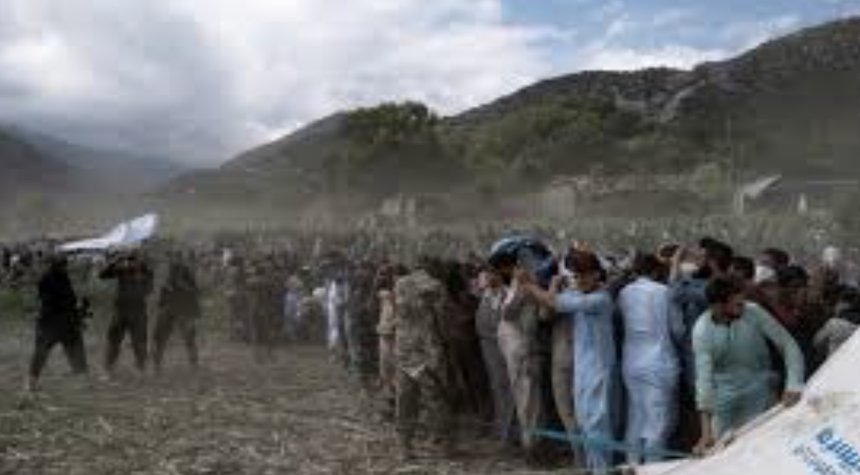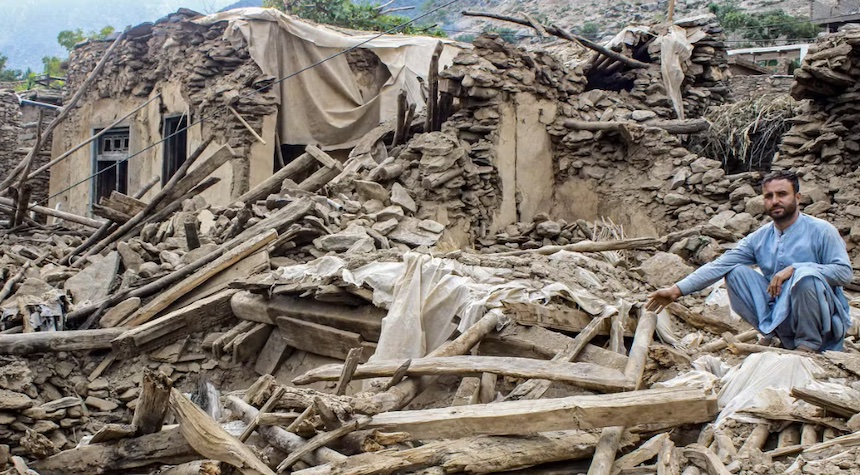The death toll from the devastating earthquake that struck eastern Afghanistan has risen to at least 2,205, four days after homes were toppled as people slept. Afghanistan’s Taliban rulers have confirmed an additional 3,640 injuries resulting from the quake, which shook the provinces of Kunar and Nangarhar at about 11:40 p.m. local time on Sunday night.
The earthquake’s devastation was particularly severe in the remote villages of the province. Landslides triggered by the tremor have blocked many roads, hampering aid efforts and the search for survivors. The evidence suggests that the terrain in some areas is so severe that helicopters can’t land, necessitating a ground-based response.
See Also: Powerful 6.0 Earthquake Rattles Southeastern Afghanistan Near Pakistan Border
Survivors, many of whom are now homeless, have been forced to bury their loved ones in mass graves, in keeping with Islamic tradition. This raises important questions about the emotional toll of this disaster on the survivors.
Afghanistan was already grappling with a humanitarian crisis at the time of the earthquake. The disaster has now stretched local resources to breaking point, according to the Norwegian Refugee Council.

The United Nations’ World Health Organization has warned that the tally of dead and injured is likely to rise over the coming days, as entire families may still be buried under the rubble. More than 6,782 homes have been destroyed, leaving thousands displaced and hospitals overwhelmed with patients requiring urgent medical attention.
The significance becomes clear when we consider the call for donations launched by the Afghan government and several international aid organizations. The Taliban’s official spokesman has shared several bank account numbers for private donations, while the Minister of Foreign Affairs, Amir Khan Mutaqi, has urged the country’s diplomats abroad to seek aid from foreign governments and charitable organizations.
Despite these efforts, securing the necessary emergency funding may prove challenging given that many foreign powers, including the U.S. and most other Western nations, have yet to recognize the Taliban as Afghanistan’s legitimate government since it regained control in 2021, according to analysts.
The people of Afghanistan, already reeling from a humanitarian crisis, now face the aftermath of a devastating earthquake. The death toll continues to rise, and resources are stretched thin. The world watches and waits as the magnitude of the disaster continues to unfurl.

